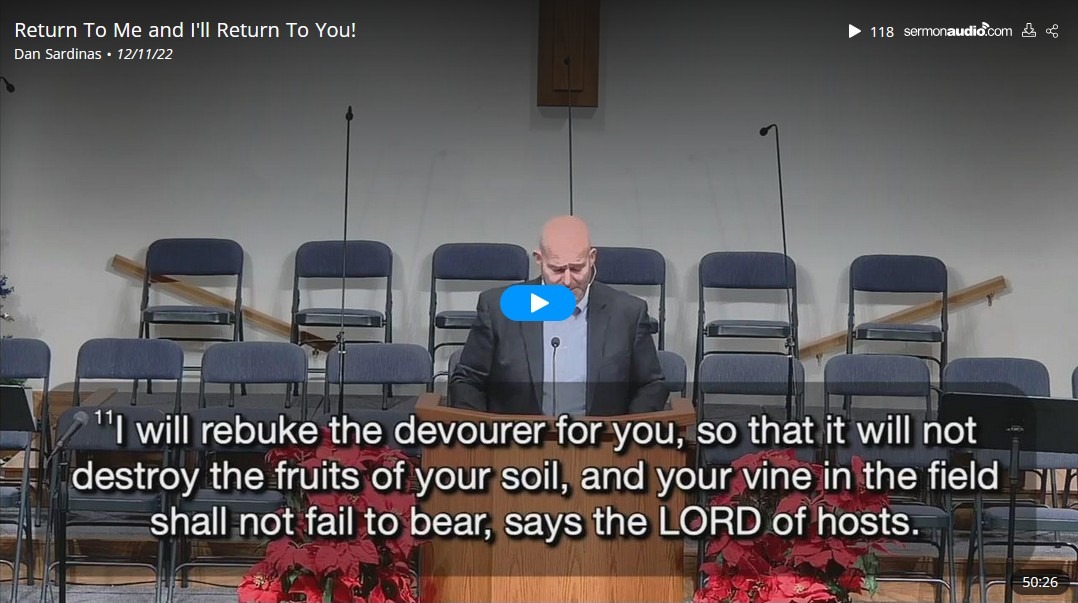Auto-generated transcript:
Open your Bibles this morning to Malachi chapter 3. I hope you’ve had a good week. I know several people in our church are out sick today, and I’ve been battling illness myself. Let’s pray for strength and that my voice holds up to the end. Yet, we know God is faithful, and His word will accomplish its purpose.
Let’s pray. Father, thank you for your love and faithfulness. We glory in the truth that despite our unfaithfulness, Christ, our Savior, has come, died, and risen for us. As we anticipate celebrating the incarnation this Christmas, remind us of Christ’s perfect fulfillment of your promises. Lord, grant me strength now and speak powerfully through your Word. In Jesus’ name, amen.
Last week, we explored verse 6, focusing on God’s immutability—His unchanging nature. Without this, Israel would have ceased to exist. Despite Israel’s continuous disobedience and rebellion, God’s grace, mercy, and patience remain steadfast. Malachi consistently shows Israel’s failures, yet God’s unwavering patience.
In Malachi 3:7, God reminds Israel of their consistent disobedience, turning aside from His statutes since their forefathers. Israel’s rejection of God’s law—His good order and design—is defined as sin, positioning oneself above God, seeking personal glory instead of God’s.
Despite their sin, God mercifully calls them to repentance: “Return to me, and I will return to you” (Malachi 3:7). This call emphasizes the biblical doctrine of repentance, a heartfelt turning back to God. True repentance involves sorrow for sin but ultimately requires change—returning to God’s statutes.
Yet, Israel questions, “How shall we return?” God answers specifically, highlighting their robbery of Him through withholding tithes and offerings. This often-misused passage isn’t about manipulating believers into compulsory giving but reveals Israel’s broken covenant relationship with God.
Israel’s tithes were required to sustain the priests, temple festivals, and the poor. Their withholding created a destructive cycle: priests became spiritually negligent, and people grew increasingly apathetic. Consequently, God pronounced a curse on their crops and resources, illustrating sin’s devastating ripple effect.
God instructs them clearly: bring the full tithe to restore His blessing. He challenges them to test His faithfulness, promising provision—not extravagance—but meeting their genuine needs. The goal is obedience, trust, and relational restoration—not material greed.
Today, Christians aren’t under Old Testament tithing laws. Our giving under the New Covenant is guided by generosity, cheerfulness, and worshipful gratitude—not legalistic obligation. We give because we have already been blessed abundantly through Christ.
Jesus perfectly fulfilled the law Israel couldn’t keep, embodying obedience and sacrifice. His incarnation, obedience, death, and resurrection offer us redemption and eternal blessings. Our giving reflects gratitude and worship toward a generous God who gave us His own Son.
Let’s pray. Father, thank you for your Word and the ultimate gift of Jesus Christ. Encourage us to give cheerfully, generously, and worshipfully. Remove any legalistic burden and fill us with joy in obediently responding to your immense grace. In Jesus’ name, amen.

